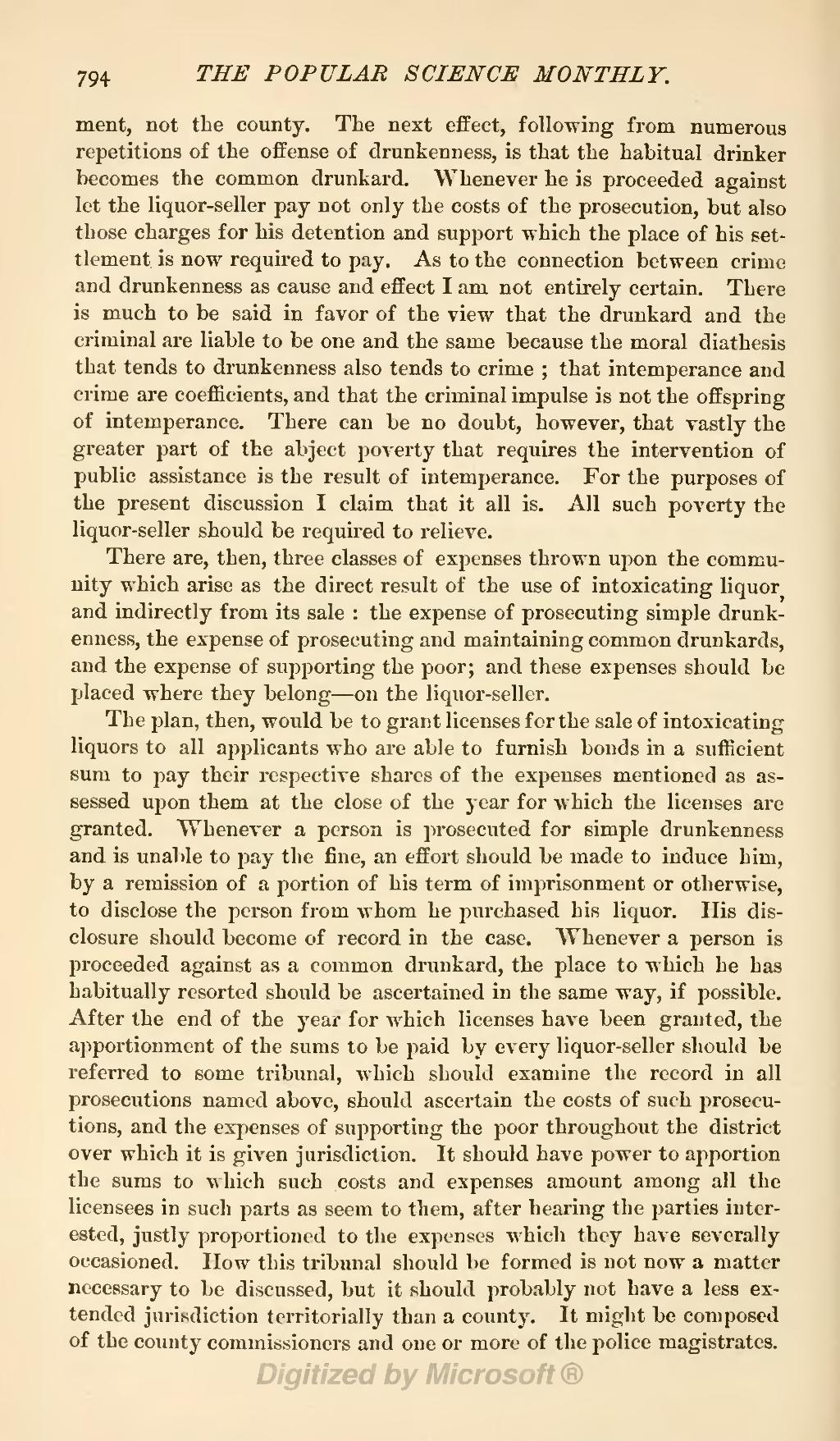ment, not the county. The next effect, following from numerous repetitions of the offense of drunkenness, is that the habitual drinker becomes the common drunkard. Whenever he is proceeded against let the liquor-seller pay not only the costs of the prosecution, but also those charges for his detention and support which the place of his settlement, is now required to pay. As to the connection between crime and drunkenness as cause and effect I am not entirely certain. There is much to be said in favor of the view that the drunkard and the criminal are liable to be one and the same because the moral diathesis that tends to drunkenness also tends to crime; that intemperance and crime are coefficients, and that the criminal impulse is not the offspring of intemperance. There can be no doubt, however, that vastly the greater part of the abject poverty that requires the intervention of public assistance is the result of intemperance. For the purposes of the present discussion I claim that it all is. All such poverty the liquor-seller should be required to relieve.
There are, then, three classes of expenses thrown upon the community which arise as the direct result of the use of intoxicating liquor and indirectly from its sale: the expense of prosecuting simple drunkenness, the expense of prosecuting and maintaining common drunkards, and the expense of supporting the poor; and these expenses should be placed where they belong—on the liquor-seller.
The plan, then, would be to grant licenses for the sale of intoxicating liquors to all applicants who are able to furnish bonds in a sufficient sum to pay their respective shares of the expenses mentioned as assessed upon them at the close of the year for which the licenses are granted. Whenever a person is prosecuted for simple drunkenness and is unable to pay the fine, an effort should be made to induce him, by a remission of a portion of his term of imprisonment or otherwise, to disclose the person from whom he purchased his liquor. His disclosure should become of record in the case. Whenever a person is proceeded against as a common drunkard, the place to which he has habitually resorted should be ascertained in the same way, if possible. After the end of the year for which licenses have been granted, the apportionment of the sums to be paid by every liquor-seller should be referred to some tribunal, which should examine the record in all prosecutions named above, should ascertain the costs of such prosecutions, and the expenses of supporting the poor throughout the district over which it is given jurisdiction. It should have power to apportion the sums to which such costs and expenses amount among all the licensees in such parts as seem to them, after hearing the parties interested, justly proportioned to the expenses which they have severally occasioned. How this tribunal should be formed is not now a matter necessary to be discussed, but it should probably not have a less extended jurisdiction territorially than a county. It might be composed of the county commissioners and one or more of the police magistrates.

